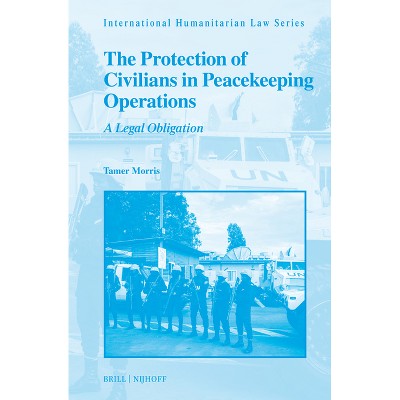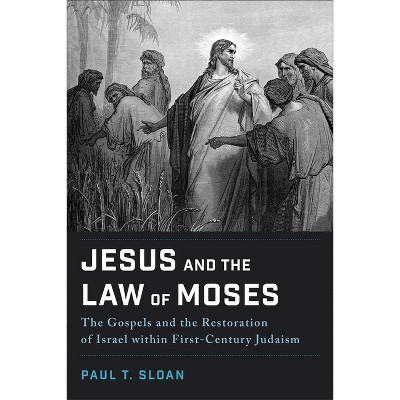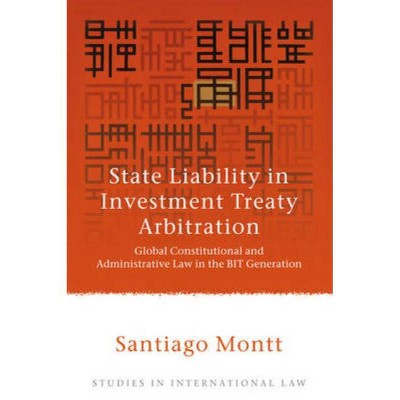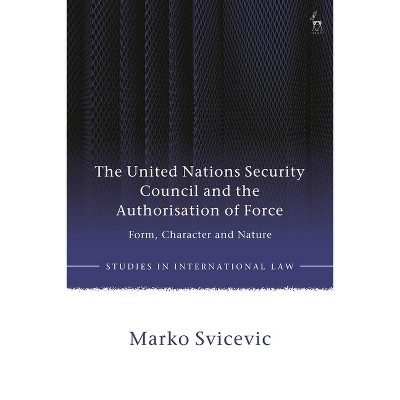Sponsored

The Militarisation of Peacekeeping in the Twenty-First Century - (Studies in International Law) by James Sloan (Hardcover)
$135.00
In Stock
Eligible for registries and wish lists
Sponsored
About this item
Highlights
- Since the end of the last century, UN peacekeeping has undergone a fundamental and largely unexamined change.
- About the Author: James Sloan is a Lecturer in International Law at the University of Glasgow, School of Law.
- 336 Pages
- Freedom + Security / Law Enforcement, International
- Series Name: Studies in International Law
Description
About the Book
"Since the end of the last century, UN peacekeeping has undergone a fundamental and largely unexamined change. Peacekeeping operations, long expected to use force only in self-defence and to act impartially, are now increasingly relied upon by the Security Council as a means to maintain and restore security within a country. The operations are established under Chapter VII of the UN Charter and some are empowered to use 'all necessary measures', language traditionally reserved for enforcement operations. Through a close examination of these twenty-first century peacekeeping operations--including operations in Sierra Leone, the Democratic Republic of the Congo, Liberia, Cãote d'Ivoire, Haiti and the Darfur region of the Sudan--the book shows that they are, for the most part, fundamentally ill-suited to the enforcement-type tasks being asked of them. The operations, which are under-funded, under-equipped and whose troops are under-trained, frequently lurch from crisis to crisis. There is scant evidence, some 10 years on, that matters are likely to improve. The book argues that bestowing enforcement-type functions on a peacekeeping operation is misconceived. Such operations are likely to be unsuccessful in their enforcement-type tasks, thereby causing serious damage to the excellent reputation of UN peacekeeping, and the UN more broadly. In addition, because such operations are more likely to be perceived as partial, their ability to carry out traditional (non-forceful) peacekeeping tasks may be impeded. Finally, the Security Council's practice of charging peacekeeping operations with enforcement functions lessens the pressure on the Council to work to establish genuine enforcement operations - ie, operations that are considerably better suited to restoring peace and security"--Provided by publisher.Book Synopsis
Since the end of the last century, UN peacekeeping has undergone a fundamental and largely unexamined change. Peacekeeping operations, long expected to use force only in self-defence and to act impartially, are now increasingly relied upon by the Security Council as a means to maintain and restore security within a country. The operations are established under Chapter VII of the UN Charter and some are empowered to use 'all necessary measures', language traditionally reserved for enforcement operations.Through a close examination of these twenty-first century peacekeeping operations - including operations in Sierra Leone, the Democratic Republic of the Congo, Liberia, Côte d'Ivoire, Haiti and the Darfur region of the Sudan - the book shows that they are, for the most part, fundamentally ill-suited to the enforcement-type tasks being asked of them. The operations, which are under-funded, under-equipped and whose troops are under-trained, frequently lurch from crisis to crisis. There is scant evidence, some 10 years on, that matters are likely to improve.
The book argues that bestowing enforcement-type functions on a peacekeeping operation is misconceived. Such operations are likely to be unsuccessful in their enforcement-type tasks, thereby causing serious damage to the excellent reputation of UN peacekeeping, and the UN more broadly. In addition, because such operations are more likely to be perceived as partial, their ability to carry out traditional (non-forceful) peacekeeping tasks may be impeded. Finally, the Security Council's practice of charging peacekeeping operations with enforcement functions lessens the pressure on the Council to work to establish genuine enforcement operations - ie, operations that are considerably better suited to restoring peace and security.
'...Dr Sloan is able to show, in knowledgeable detail, not only what has changed over the years, but also what has brought these changes about. His analysis leads him to offer not only well-informed insights, but critical observations, too...This book is a pleasing combination of detailed scrutiny of topics already familiar (provisional measures, consent, so-called 'Chapter VI1/2' action, implied powers) and a rigorous questioning as to their place in - or indeed, relevance at all to - militarised peacekeeping. The reader will find much new terrain traversed, and plenty of out-of-the-box thinking.'
From the foreword by Dame Rosalyn Higgins
About the Author
James Sloan is a Lecturer in International Law at the University of Glasgow, School of Law.Dimensions (Overall): 9.2 Inches (H) x 6.6 Inches (W) x .8 Inches (D)
Weight: 1.15 Pounds
Suggested Age: 22 Years and Up
Number of Pages: 336
Genre: Freedom + Security / Law Enforcement
Sub-Genre: International
Series Title: Studies in International Law
Publisher: Bloomsbury Publishing PLC
Format: Hardcover
Author: James Sloan
Language: English
Street Date: November 1, 2011
TCIN: 1007424520
UPC: 9781849461146
Item Number (DPCI): 247-28-2627
Origin: Made in the USA or Imported
If the item details aren’t accurate or complete, we want to know about it.
Shipping details
Estimated ship dimensions: 0.8 inches length x 6.6 inches width x 9.2 inches height
Estimated ship weight: 1.15 pounds
We regret that this item cannot be shipped to PO Boxes.
This item cannot be shipped to the following locations: American Samoa (see also separate entry under AS), Guam (see also separate entry under GU), Northern Mariana Islands, Puerto Rico (see also separate entry under PR), United States Minor Outlying Islands, Virgin Islands, U.S., APO/FPO
Return details
This item can be returned to any Target store or Target.com.
This item must be returned within 90 days of the date it was purchased in store, shipped, delivered by a Shipt shopper, or made ready for pickup.
See the return policy for complete information.
Trending Non-Fiction

$15.68
Buy 2, get 1 free select books, music & movies
4.7 out of 5 stars with 192 ratings

$19.31
was $20.98 New lower price
Buy 2, get 1 free select books, music & movies
4 out of 5 stars with 60 ratings

$19.58
MSRP $29.00
Buy 2, get 1 free select books, music & movies
4.6 out of 5 stars with 13 ratings

$4.59
MSRP $7.99
Buy 2, get 1 free select books, music & movies
4.8 out of 5 stars with 120 ratings

$6.20
MSRP $10.95
Buy 2, get 1 free select books, music & movies
4.8 out of 5 stars with 33 ratings

$7.09
MSRP $9.99
Buy 2, get 1 free select books, music & movies
4.9 out of 5 stars with 46 ratings





